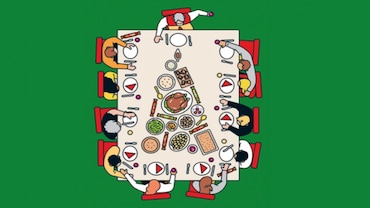- HOME
- /
- Features
- /
- Cover Story
- /
Hearts of Steel: Wounds Worth Wearing
A captain’s wife witnesses how soldiers must come to terms with life-changing injuries sustained in combat

I witnessed a daily sight as I walked from the guest room to the officers’ ward in the mornings. Near a crossroad, the hospital staff would be carrying coffins towards the mortuary. These were the bodies of our brave soldiers who had made the ultimate sacrifice in the Kargil War. I would join my hands together in prayer for the departed and their family, who would receive their coffins with broken hearts. I prayed to God to give them the courage to face the bitter truth of an ugly war, as ultimately, they were the sufferers. For them, time had stood still, and they would never see their loved ones again. The country was losing its most sincere, loyal and brave sons. People would always remember them with honour, but this could never make up for the void felt by their loved ones.
The coffins were not the only observations I made on a daily basis. In the evenings, I would visit the small food joint on campus and I would see many soldiers. They were all wounded. Some would never walk again, some would never see again, and some had lost their limbs. Some of them had their bones crushed into such tiny pieces that doctors had to piece them together with steel rods and screws. The wounds on their bodies were covered in bandages, while their sombre faces and vacant eyes bore testimony to the torment they had endured. They would struggle with the smallest tasks for the rest of their lives. Their disabled status would get them downgraded in the army on medical grounds. The army would not ask them to leave, but their self-respect would not let them stay.
Each and every victory on the peaks of Kargil was achieved by paying a heavy price. Often, Akhilesh would wake up from convulsions in his dreams in the middle of the night. He was haunted by the harrowing images of war: blood on the ground, snow turned black, smoke everywhere, the bloody wounds of his comrades and him directing artillery fire. He would scream and say he wanted to go back and fight the enemy.
Once Akhilesh was able to move around in a wheelchair, he asked me to take him to the soldiers’ ward. He wanted to meet his men. It was a huge dormitory with beds lined up on both sides, leaving space to walk in between. On seeing Capt. Akhilesh and me, the soldiers in the ward became emotional.
“Sir, what will I do now?” Rifleman Madhav Singh was sobbing. His legs had been amputated. “I have young kids, a wife and old parents. Who will provide for them now?” Capt. Akhilesh extended his hand to console him. “Sir, I want to die. I can’t live life as a disabled person.’
“You are a soldier, and you are crying? You have lost your legs while fighting for your country. The army will take care of you and your family,” Capt. Akhilesh assured him.
“Sir, we know the army will take care of us, but we are the ones who will go through life with our disabilities. Without my hands, I will now be dependent on my family. It would have been better if I had died” It was the voice of Sepoy Vishnu Sharma from the next bed.

“Sir, the bitter truth of life will not change for me. There is only darkness in front of my eyes,” said Rifleman Jaswant Singh from the next bed.
There were so many questions, so much uncertainty and so much sorrow. Everyone was looking at us as though we could explain the conditions life had imposed on them.
Then Akhilesh asked them this question, “Do you all regret fighting the war against the enemy to protect out county)?”
“No, sir, we will go again if given a chance. We are willing to sacrifice our lives for our country,” Havaldar Gurudev Singh said, and the others nodded in agreement.
“Martyrdom is an honour achieved only by the luckiest. The rest will have to find glory in their disabilities. You are all soldiers who fought for your country. No one can ever take away this from you. You have done the greatest service to the nation,” Capt. Akhilesh reminded them.
The news about the wretched environment in the hospital wards must have reached the commander of the Base Hospital. He opened the hospital gates, from 11 a.m. to 1 p.m., for people who wished to meet the Kargil War heroes, to thank and honour them for their bravery and sacrifices. One morning while feeding Akhilesh his breakfast, through the window, I saw many school children lined up in the corridor outside. The nurse came inside and informed us that the kids wished to meet their war heroes. They were carrying cards, chocolates and letters for the wounded officers. A sense of pride overwhelmed Akhilesh and his eyes welled up.
It was the morning that established glory in the history of modern India. All the newspapers were flooded with the headlines: India declared 26 July 1999 as ‘Kargil Vijay Diwas’ (Kargil Victory Day). The Indian Army had declared a successful culmination of ‘Operation Vijay’, declaring victory after an almost three-month-long battle on the frosty peaks of Kargil. Drass had been cleared of all intruders. We all shed tears of joy. It was a day for rejoicing and the officers decided to celebrate it with their soldiers. They all chipped in and ordered exotic dishes from restaurants and, with the help of the hospital staff, had the soldiers’ ward decorated with flowers, lights and balloons. They danced with their crutches, glucose bottles held up in the air, on one leg, without any hands. The victory of Kargil is not a story of just winning. It’s a story of pain with pride; a story where death is not the end.
From Nation First by Shikha Akhilesh Saxena (Hachette). Edited excerpt reproduced with permissions.







